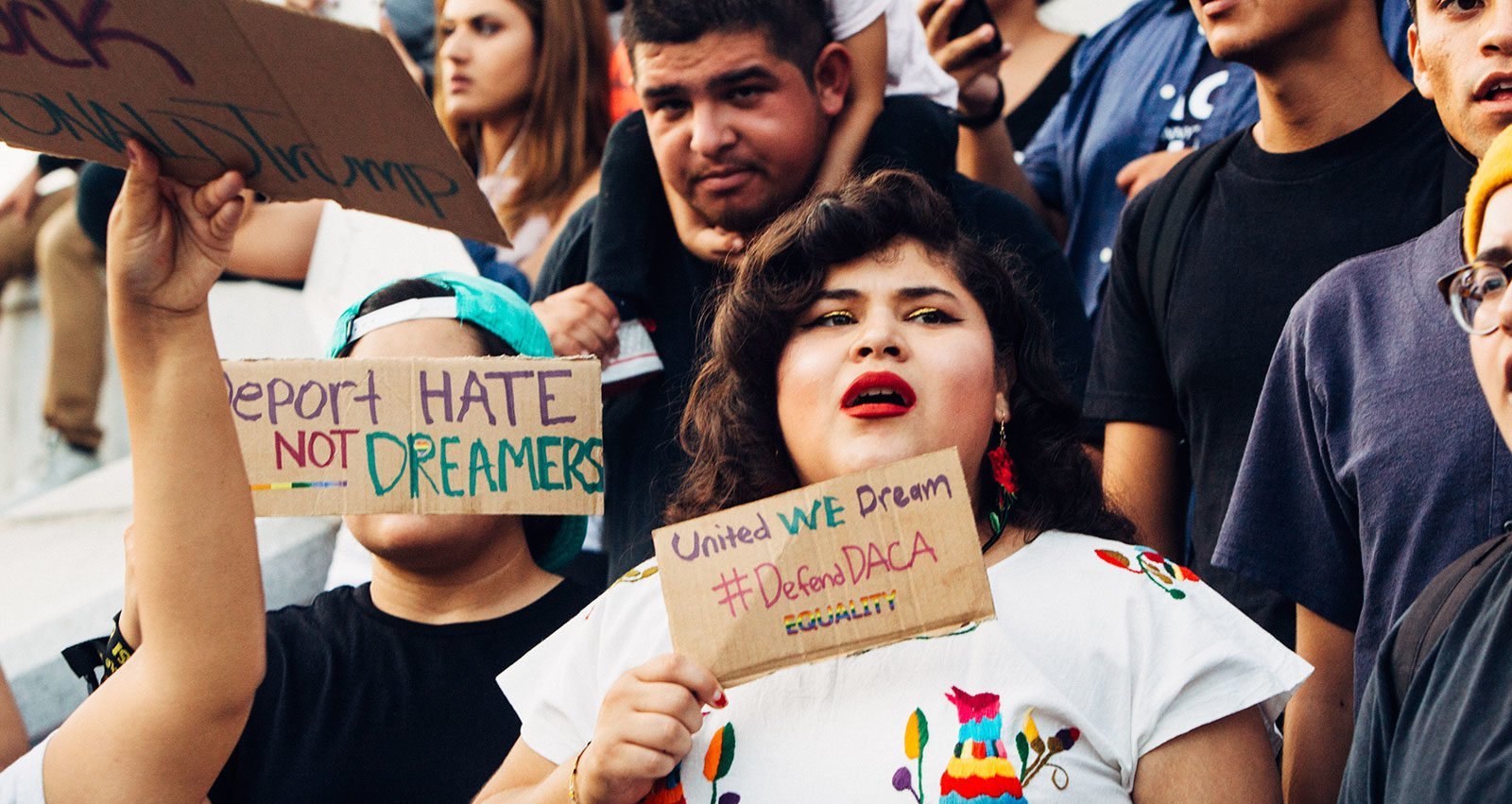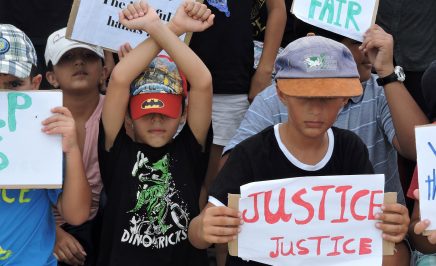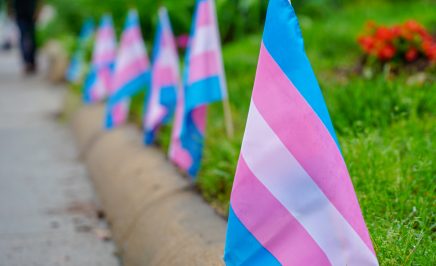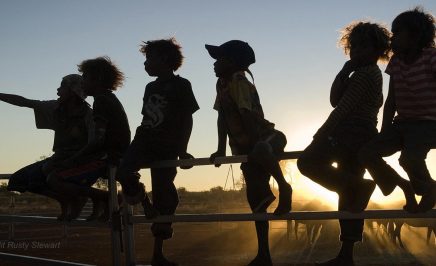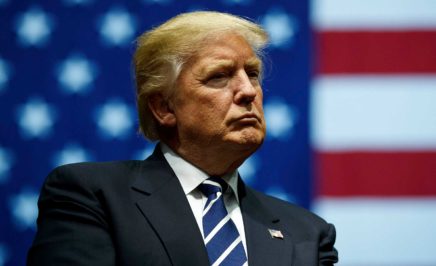Following President Trump’s decision to revoke the Deferred Action for Childhood Arrivals (DACA) programme, affecting the future of nearly 800,000 people in the US, journalist Liz Fields takes a look at the upshot of Trump’s presidency — so far — on human rights and civil liberties.
A new world order has set in, and an explosive populist is at its helm. Explosive, because if nothing else, Donald Trump, the real estate mogul and reality-TV star-turned-US president, has certainly shaken things up on Capitol Hill, and is doing a decent job of peddling the same brand of disruptive politics overseas. In the last eight months, spats with media, reality television-esque firings and hirings, and brash tweets at all hours have quickly become the hallmarks of Trump’s America. Some critics have called out the theatrics as a smokescreen for the administration’s attempts to mask quiet policy changes, quietly erode human rights, and/or as a divert from investigations into any potential collusion with Russians during the 2016 election. Others have defended the president’s isolationist policies, especially on immigration and trade, as an attempt to bring back American jobs and uphold his campaign promises.
In the midst of this chaos, and daily dramatic headlines, it can be hard to track what impact the 45th US president has actually had both on domestic and global issues.
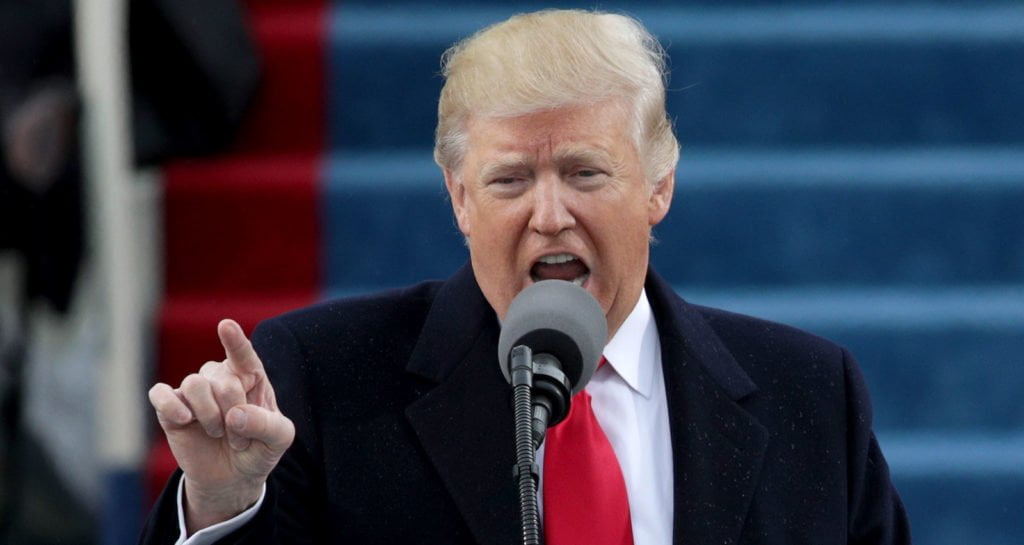
Controversial decisions
Keystone XL pipeline
In his first months in office, Trump has not only tried to implement many socially destructive policies, but has reversed many civil protections implemented under his predecessor, Barack Obama. Those include Trump’s revival of the Keystone XL pipeline, despite months of mass protests over the risk of oil spills onto native lands and waterways. The pipeline started shipping its first gallons of oil early this summer, but litigation is still ongoing in federal court over the project.
Deferred Action for Childhood Arrivals (DACA)
Last week, the Trump administration ended DACA, an Obama-era policy that protects certain undocumented immigrants from being deported. Trump has long promised to end DACA, which provides work permits for immigrants who were brought to America as children (known as ‘Dreamers’). You can expect a fight, though. Nearly 800,000 people could be forced to leave the country as a result of the decision.
Gender pay gap
In late August Trump also pulled back an Obama-era initiative intended to close the gender pay gap. The former policy would have mandated transparency from employers who would be forced to collect data on how much they pay workers of different genders, races and ethnicities. The White House claimed “the proposed policy would not yield the intended results” and is “enormously burdensome”. Trump’s own daughter, Ivanka, supported backtracking on the policy, despite her purported advocacy on women’s issues.
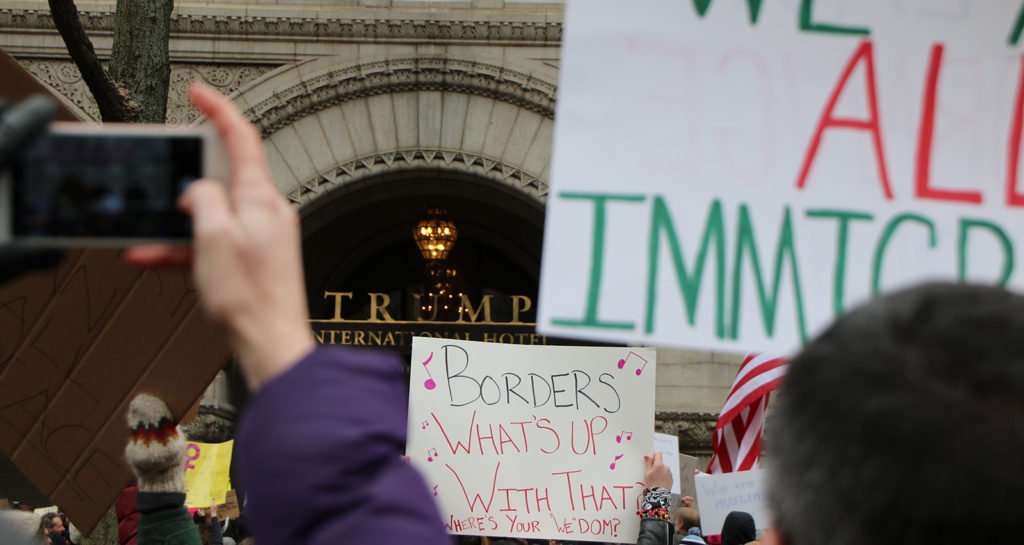
Immigration ban
Trump’s attempted ban on immigrants from six Muslim-majority states from entering the US is still playing out in the American legal system, and has found its way to the Supreme Court — the US’s highest court, which has decided to hear the case. In the meantime, the Supreme Court justices have reinstated parts of the ban against travellers from Syria, Iran, Yemen, Somalia, Libya, Somalia, and Sudan, but narrowed the terms of the ban by exempting those with “a bona fide relationship with a person or entity in the United States.”
Transgender rights
Trump has also recently signed a directive to the military that would reinstate a prohibition on transgender people from service, in yet another reversal of an Obama-era guideline that allowed transgender people to serve openly. The new policy would also prevent the Defense Department from spending any money on transgender reassignment surgeries, but Trump left it up to Defense Chief Jim Mattis to decide whether or not to remove currently serving transgender personnel from the armed forces. Already at least one lawsuit has been filed against the ban in a Washington District Court. The judge assigned to the case last week was the same one responsible for blocking the first iteration Trump’s immigration ban.
Police brutality
At the same time as blocking rights for women, the LGBTQ community, minorities, and immigrants, Trump has seemingly also endorsed police brutality. In July, he suggested to a group of police officers in New York that they should hit suspects’ heads on car doors while arresting them.
“When you see these towns and when you see these thugs being thrown into the back of a paddy wagon, you just see them thrown in, rough, and I said, ‘Please don’t be too nice,” Trump said. “Like when you guys put somebody in the car and you’re protecting their head, you know, the way you put their hand over, like, don’t hit their head and they’ve just killed somebody, don’t hit their head, I said, ‘You can take the hand away, OK?'”
Are there any silver linings?
It can be difficult to see a silver lining through an opaque pane of policy reversals and attacks on human and civil rights but the one theme that has sustained in recent months is; resistance.
America has not only seen mass protests organised by many communities that have been directly affected by Trump’s policies, but also by allies from a budding “resistance movement” that recently counter-protested against white supremacists and other racist factions in the US.
Countless lawyers have also sprung to the aid of immigrants who have been affected by Trump’s immigration ban and impending reversal of DACA; and Planned Parenthood and the ACLU saw an unprecedented flood of donations after Trump’s inauguration. The Women’s March drew millions to their Facebook page right after Trump’s election, and in the first 100 days of the presidency, countless other protests have been held on topics ranging from climate change and health care, to immigrant and LGBTQ rights.
If the Trump’s policies have done nothing else, it seems they have helped to galvanize dissent and reinforce a prevailing humanity to counter-attack the stifling of human rights and liberties.
The removal of the DACA programme will affect around 800,000 people, most of whom are in their 20s. These young people have come to the US as children – through no fault of their own, and have grown up contributing to communities and building a life that’s about to be ripped away. Stand with the Dreamers today.
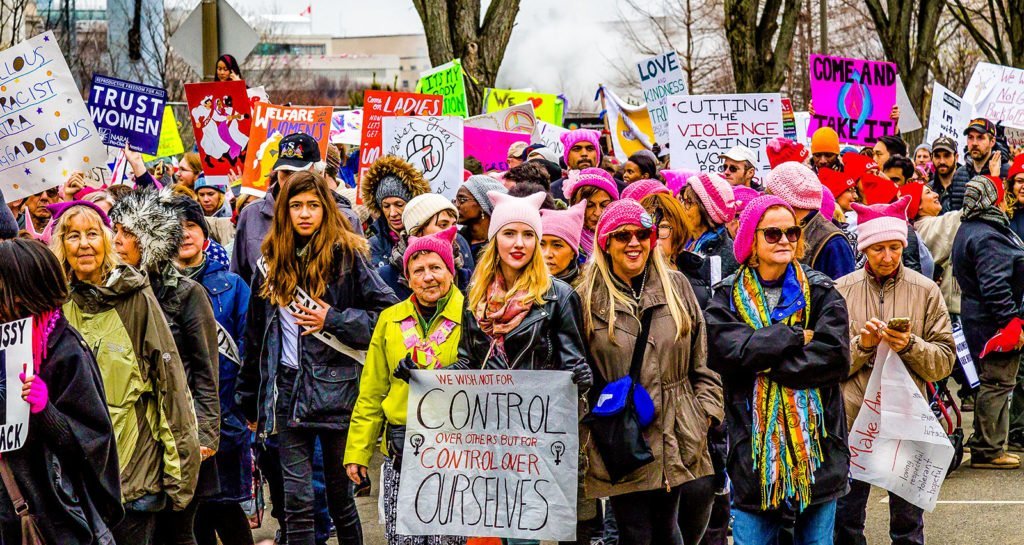
Liz Fields is an Australian journalist in the US who covered both Republican and Democratic candidates during the 2016 election cycle. She has written for a host print and digital media outlets in Australia, the US and beyond.
